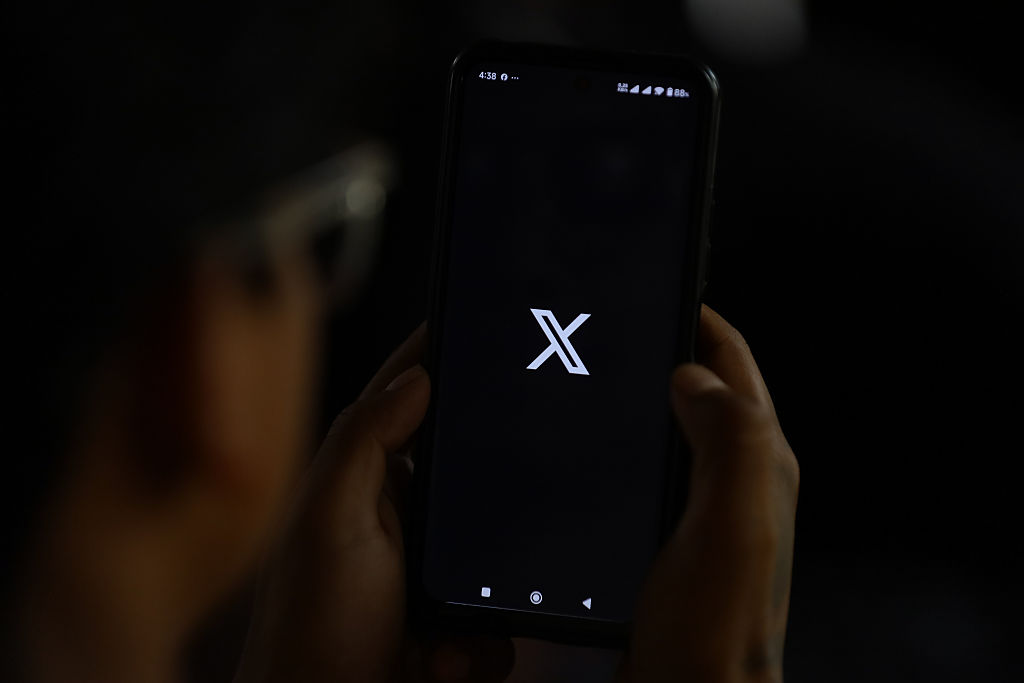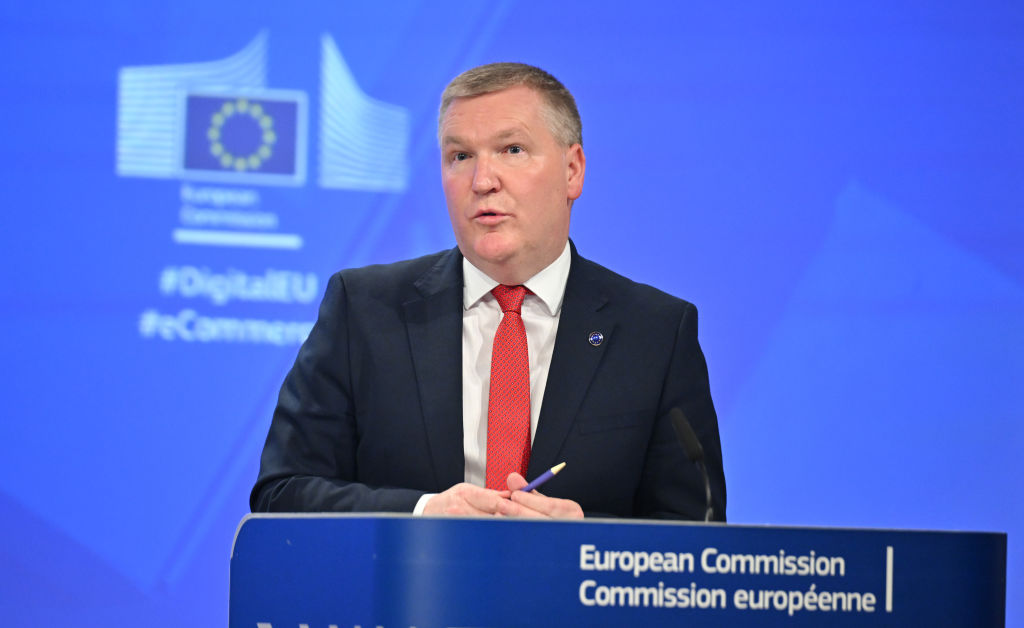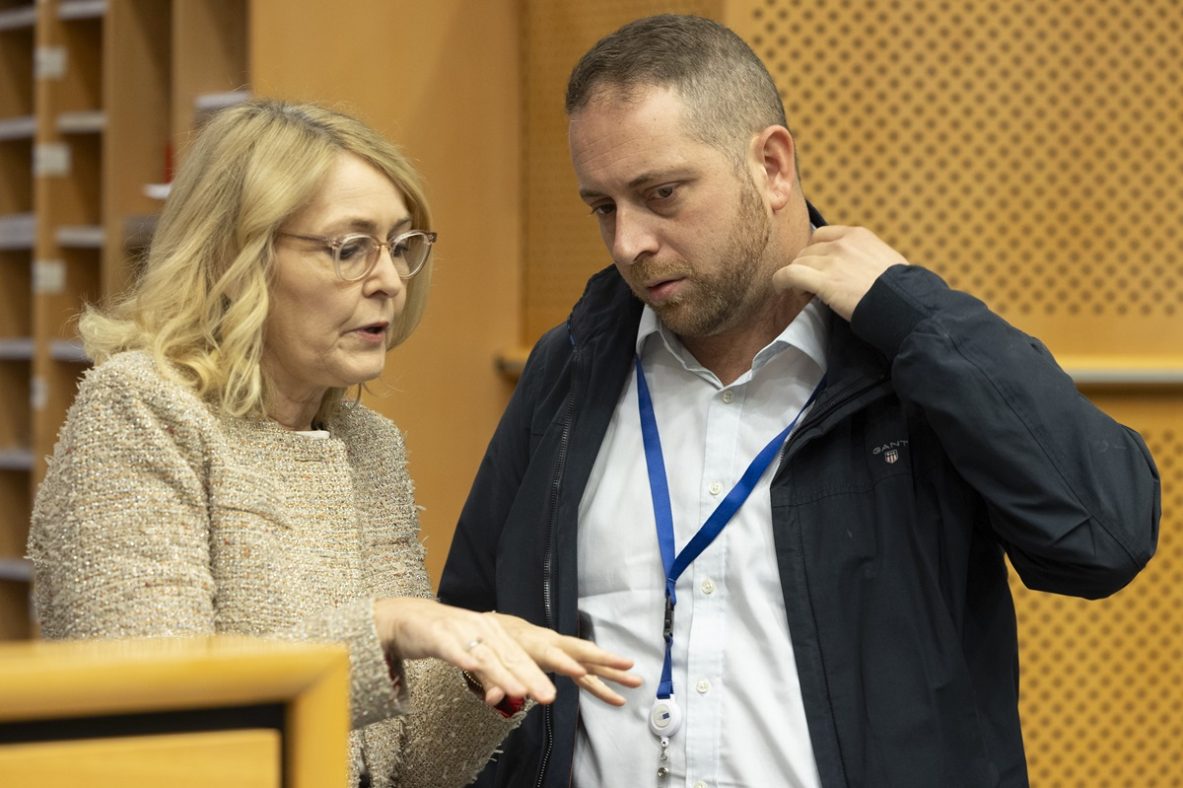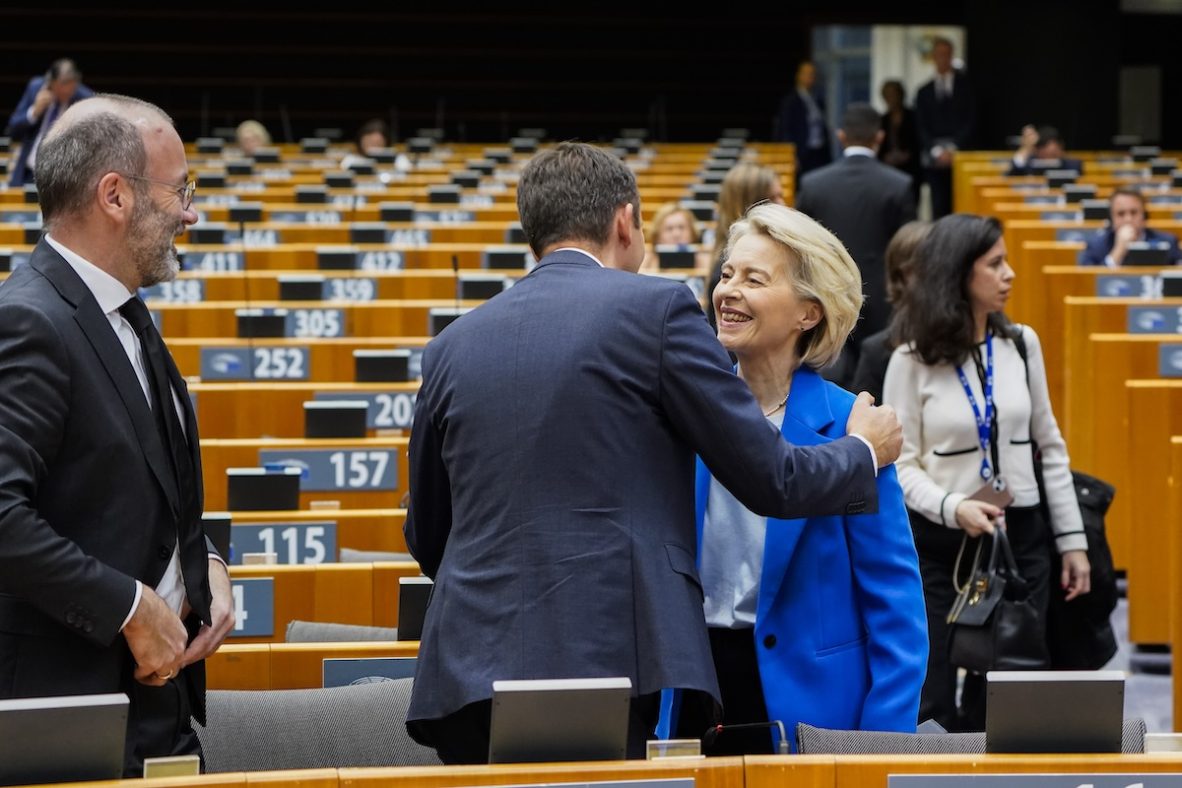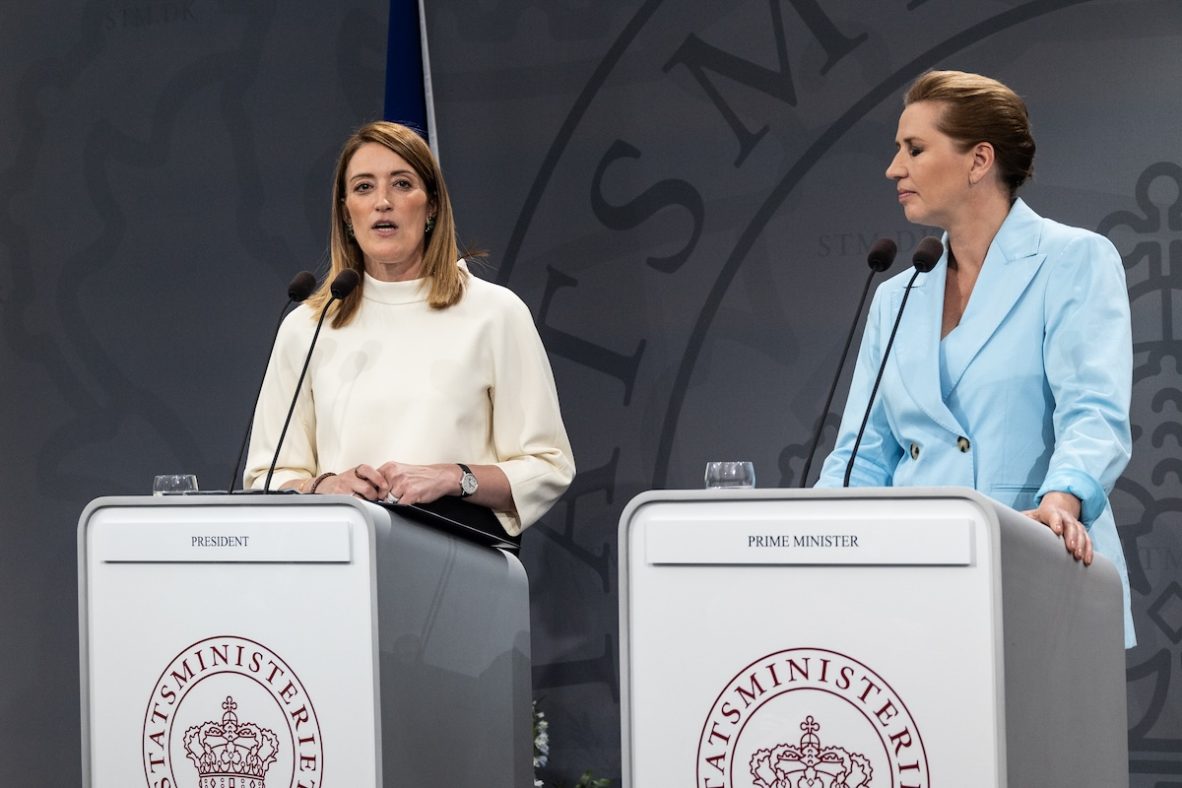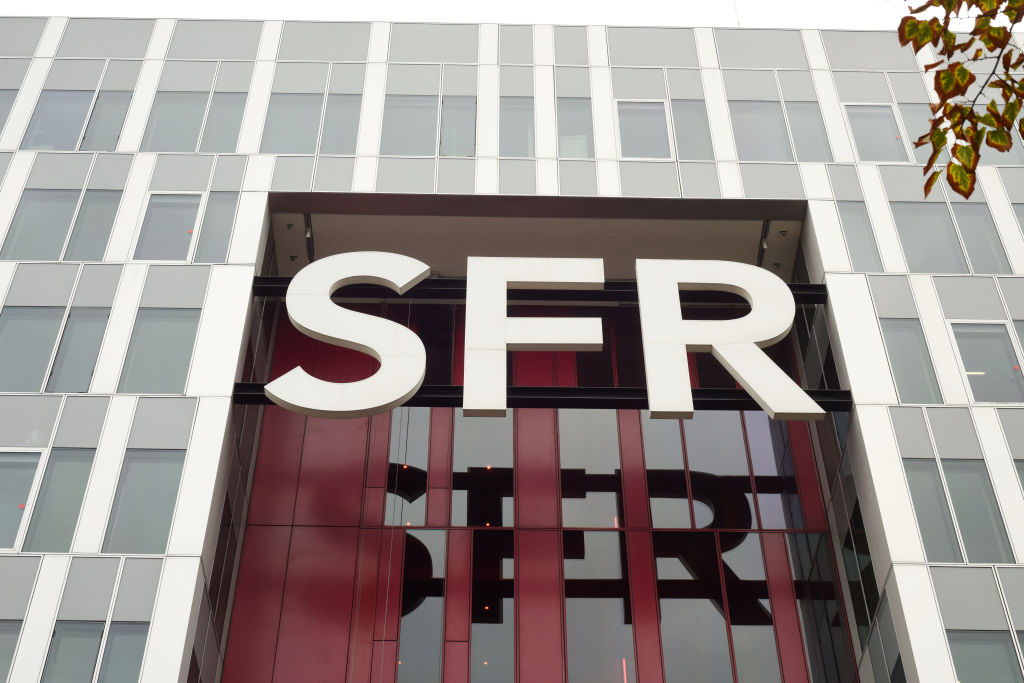Race to lead EU’s powerful competition watchdog narrows as political stakes rise
The final decision on who will run the Commission’s powerful competition directorate will be overshadowed by strained EU–US relations
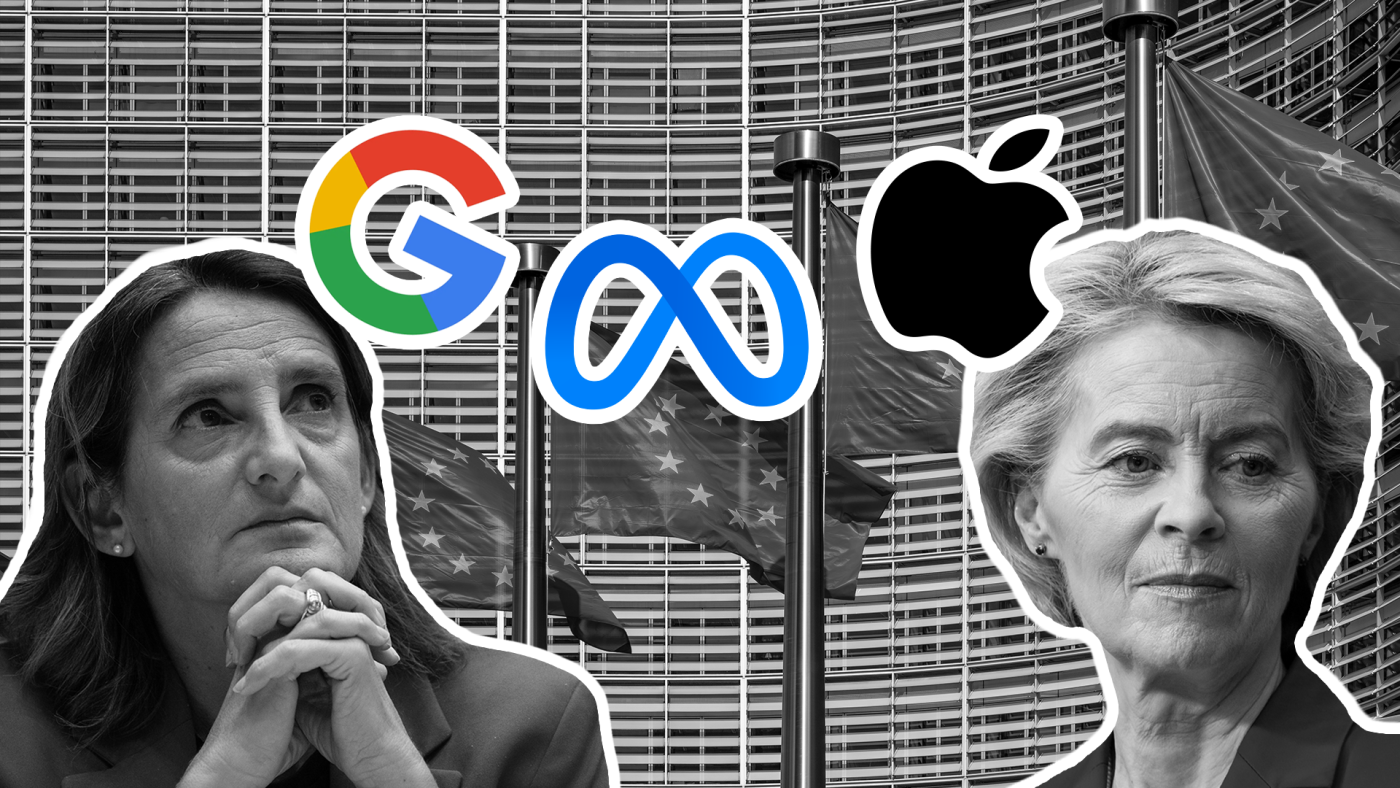
The race to lead the European Commission’s powerful competition enforcement department has narrowed with only a handful of candidates considered to be viable contenders, officials and lawyers monitoring the process tell Euractiv.
The group of aspirants includes both internal and external candidates. They are vying to lead a division, known as DG Comp, tasked with assessing corporate mergers, upholding state aid rules and ensuring that American tech giants don’t violate European competition rules. The timing for final decision, which is ultimately Commission President Ursula von der Leyen’s to make, remains a mystery.
Euractiv canvassed a group of eight Commission officials, seasoned competition lawyers, and others who know DG Comp and the candidates but are not directly involved in the decision. According to these sources, the candidates still in the hunt include two deputy department heads – Guillaume Loriot and Anthony Whelan; the current head of the Commission’s energy department Ditte Juul Jørgensen; and Céline Gauer, who is currently director general of the Commission’s Reform and Investment Task Force.
There is also a chance that a dark horse could emerge down the final stretch.
Power player
The role is hugely important because competition is one of the few areas where the Commission holds exclusive legislative power, and the ability to hit tech giants with fines large enough to make them sit up and take notice.
The succession race comes at a delicate time with the EU’s digital regulations drawing heavy criticism from President Donald Trump’s administration, which has been aggressive in attacking the EU’s enforcement of its tech rules on US companies.
The dynamic has made the position of director general, the highest-ranking civil service post in division, highly political.
“The Commission has become more and more political throughout time,” Mario Mariniello, an analyst at Brussels-based think tank Bruegel, told Euractiv. “That… creates a risk because enforcement should be very objective.”
Troika of responsibility
The next DG COMP chief will likely have to deal with far more intricate power plays than has typically been the case, commanding competition policy while also working to help the Commission navigate tricky trade negotiations with Trump.
These geopolitical pressures will affect the dynamic of the new director and could force them to apply competition policy less dogmatically than their predecessors.
“The interplay between these dimensions is the biggest challenge that competition is now going to play,” Mariniello said.
Regulating big tech, meanwhile, is not going to get any easier.
“The next DG COMP must be fearless,” said MEP Alexandra Geese from the Greens, adding that they must be “ready to curb the rent-seeking of big tech and safeguard a level playing field for European innovators.”
Game of ‘Succession’
Given the importance of the position, it is likely von der Leyen will want to sign off on the appointment herself, rather than leaving it Competition Commissioner Teresa Ribera.
Olivier Guersent, the French civil servant who led DG Competition from 2020 until he retired in August, passed the baton to competition veteran Linsey McCallum on an interim basis.
McCallum, a British-German national, has been DG COMP’s deputy director for antitrust and digital platforms since 2020, a role she continues to fulfil in addition to her interim leadership function.
McCallum has ruled herself out for the top job, according to Euractiv’s sources. She declined to be interviewed for this article.
Currently, there are three deputy DGs at the top of the unit who, considering their seniority, are seen as leading contenders: Loriot, responsible for mergers; Whelan, in charge of state aid; and McCallum, overseeing antitrust and digital platform regulation.
Sources suggest that important factors for determining who will be the next director – beyond nationality – include personality and a rapport with Ribera, who will have a significant say in who gets the job.
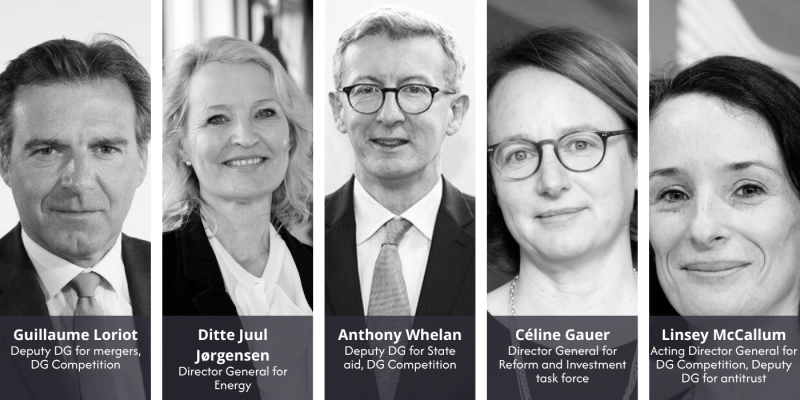
Graphic by Miriam Sáenz de Tejada
Loriot ante portas?
That said, there doesn’t appear to be a clear frontrunner.
In the case of Loriot, one competition lawyer Euractiv spoke to suggested that the timing may be “too early” to elevate him. In addition, it could prove tricky to install another French national so soon after Guersent held the top job.
Irish civil servant Whelan, who only recently took up the deputy role after serving in von der Leyen’s cabinet as a digital and economic advisor, may have a better shot, per this same source, who described him as “one of the strongest candidates” because Whelan has worked directly with the president since 2019 in shaping the Commission’s digital and competiton policy.
Loriot declined to comment for this story. Whelan did not respond to Euractiv’s request for a comment.
Among the names in play from outside DG COMP is Danish civil servant and DG Energy chief Ditte Juul Jørgensen.
Jørgensen was the former chief of staff to ex-competition commissioner, Margrethe Vestager.
Being from a small EU country is seen by some as an advantage for Jørgensen when it comes to handling the competition brief, as it could make it easier to dodge accusations of conflicts of interest.
Another name mentioned is Gauer, a French civil servant who previously worked at the unit for several years and currently runs the Commission’s Reform and Investment Task Force.
Two competition lawyers that Euractiv spoke with said that she has been considered for the top job since the beginning.
Ultimately, the importance of finding the right person for such a key job may outweigh lesser considerations such as nationality, former Czech MEP Dita Charanzová said. It’s “a key appointment,” not a “technical HR decision,” she said, adding that the candidate “must be politically aligned with President von der Leyen’s agenda.”
It remains unclear when the Commission will announce who best fits that description. A spokesperson declined to comment.
EU fines Google €2.95 billion
Tech
The European Commission announced on Friday that it fined US tech giant Google €2.95 billion…
3 minutes

(nl, cm, jp)
